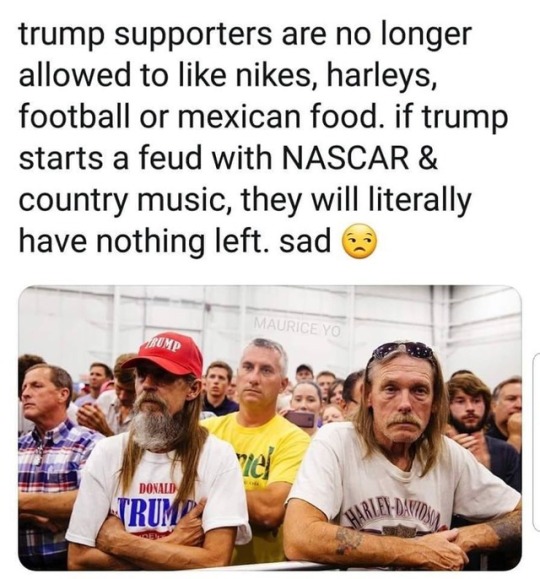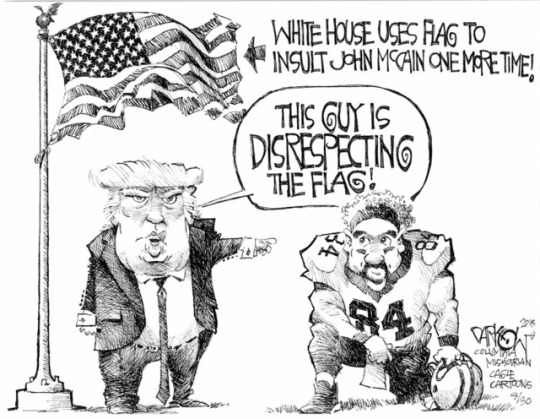Welcome to DU!
The truly grassroots left-of-center political community where regular people, not algorithms, drive the discussions and set the standards.
Join the community:
Create a free account
Support DU (and get rid of ads!):
Become a Star Member
Latest Breaking News
General Discussion
The DU Lounge
All Forums
Issue Forums
Culture Forums
Alliance Forums
Region Forums
Support Forums
Help & Search
Mr. Scorpio
Mr. Scorpio's Journal
Mr. Scorpio's Journal
September 6, 2018
If Dan Coats hands in his "resignation" by Friday
I figure that Lawrence O'Donnell had just guessed right.
September 6, 2018
Aretha Franklin - "MacArthur Park" (1975/Los Angeles)
September 6, 2018
How White People Handle Diversity Training in the Workplace
Confronted with their own shortcomings, white employees often shut down the dialogue—or frame themselves as victims
Robin DiAngelo
As a former professor and current facilitator and consultant, I am in a position to give white people feedback on how their unintentional racism is manifesting itself. In this position, I have observed countless enactments of white fragility. One of the most common is outrage: “How dare you suggest that I could have said or done something racist!” Although these are unpleasant moments for me, they are also rather amusing. The reason I’m there in the first place is because I have been hired specifically to do just that; I have been asked to help the members of the organization understand why their workplace continues to remain white, why they are having so much trouble recruiting people of color, and/or why the people of color they hire don’t stay. They want to know what they are doing that is unsupportive to people of color.
At this point in my career, I rarely encounter the kind of open hostility that I was met with in my early days as a facilitator. I attribute this change to the years of experience behind my pedagogy. Of course, I am also white, which makes other white people much more receptive to the message. I am often amazed at what I can say to groups of primarily white people. I can describe our culture as white supremacist and say things like, “All white people are invested in and collude with the system of racism,” without my fellow white people running from the room or reeling from trauma. Naturally, I don’t walk in and lead with those statements; I strategically guide people to a shared understanding of what I mean by those claims. Still, white people tend to be more receptive to my presentation as long as it remains abstract. The moment I name some racially problematic dynamic or action happening in the room in the moment — for example, “Sharon, may I give you some feedback? While I understand it wasn’t intentional, your response to Jason’s story invalidates his experience as a black man” — white fragility erupts. Sharon defensively explains that she was misunderstood and then angrily withdraws, while others run in to defend her by reexplaining “what she really meant.” The point of the feedback is now lost, and hours must be spent repairing this perceived breach. And, of course, no one appears concerned about Jason. Shaking my head, I think to myself, “You asked me here to help you see your racism, but by god, I’d better not actually help you see your racism.”
The goal of my work is to make visible the inevitable racist assumptions held, and patterns displayed, by white people conditioned from living in a white supremacist culture. When these patterns are named or questioned, we have predictable responses. The responses begin with a set of unexamined assumptions, which, when questioned, trigger various emotions, which activate some expected behaviors. These behaviors are then justified by numerous claims. These responses, emotions, behaviors, and claims are illustrated in the following example of a recent eruption of white fragility.
I was co-leading a community workshop. Because an employer had not sponsored it, the participants had all voluntarily signed up and paid a fee to attend. For this reason, we could assume that they were open and interested in the content. I was working with a small group of white participants when a woman I will refer to as Eva stated that because she grew up in Germany, where she said there were no black people, she had learned nothing about race and held no racism. I pushed back on this claim by asking her to reflect on the messages she had received from her childhood about people who lived in Africa. Surely she was aware of Africa and had some impressions of the people there? Had she ever watched American films? If so, what impression did she get about African Americans? I also asked her to reflect on what she had absorbed from living in the U.S. for the last 23 years, whether she had any relationships with African Americans here, and if not, then why not.
https://medium.com/s/story/how-white-people-handle-diversity-training-in-the-workplace-e8408d2519f
Robin DiAngelo
As a former professor and current facilitator and consultant, I am in a position to give white people feedback on how their unintentional racism is manifesting itself. In this position, I have observed countless enactments of white fragility. One of the most common is outrage: “How dare you suggest that I could have said or done something racist!” Although these are unpleasant moments for me, they are also rather amusing. The reason I’m there in the first place is because I have been hired specifically to do just that; I have been asked to help the members of the organization understand why their workplace continues to remain white, why they are having so much trouble recruiting people of color, and/or why the people of color they hire don’t stay. They want to know what they are doing that is unsupportive to people of color.
At this point in my career, I rarely encounter the kind of open hostility that I was met with in my early days as a facilitator. I attribute this change to the years of experience behind my pedagogy. Of course, I am also white, which makes other white people much more receptive to the message. I am often amazed at what I can say to groups of primarily white people. I can describe our culture as white supremacist and say things like, “All white people are invested in and collude with the system of racism,” without my fellow white people running from the room or reeling from trauma. Naturally, I don’t walk in and lead with those statements; I strategically guide people to a shared understanding of what I mean by those claims. Still, white people tend to be more receptive to my presentation as long as it remains abstract. The moment I name some racially problematic dynamic or action happening in the room in the moment — for example, “Sharon, may I give you some feedback? While I understand it wasn’t intentional, your response to Jason’s story invalidates his experience as a black man” — white fragility erupts. Sharon defensively explains that she was misunderstood and then angrily withdraws, while others run in to defend her by reexplaining “what she really meant.” The point of the feedback is now lost, and hours must be spent repairing this perceived breach. And, of course, no one appears concerned about Jason. Shaking my head, I think to myself, “You asked me here to help you see your racism, but by god, I’d better not actually help you see your racism.”
The goal of my work is to make visible the inevitable racist assumptions held, and patterns displayed, by white people conditioned from living in a white supremacist culture. When these patterns are named or questioned, we have predictable responses. The responses begin with a set of unexamined assumptions, which, when questioned, trigger various emotions, which activate some expected behaviors. These behaviors are then justified by numerous claims. These responses, emotions, behaviors, and claims are illustrated in the following example of a recent eruption of white fragility.
I was co-leading a community workshop. Because an employer had not sponsored it, the participants had all voluntarily signed up and paid a fee to attend. For this reason, we could assume that they were open and interested in the content. I was working with a small group of white participants when a woman I will refer to as Eva stated that because she grew up in Germany, where she said there were no black people, she had learned nothing about race and held no racism. I pushed back on this claim by asking her to reflect on the messages she had received from her childhood about people who lived in Africa. Surely she was aware of Africa and had some impressions of the people there? Had she ever watched American films? If so, what impression did she get about African Americans? I also asked her to reflect on what she had absorbed from living in the U.S. for the last 23 years, whether she had any relationships with African Americans here, and if not, then why not.
https://medium.com/s/story/how-white-people-handle-diversity-training-in-the-workplace-e8408d2519f
Profile Information
Member since: 2002Number of posts: 73,630


































